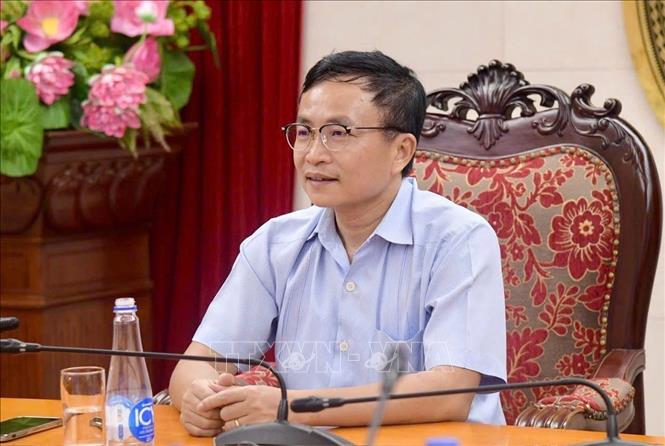
Regulations on online citizen reception
Dr. Tran Dang Vinh, Senior Inspector, Head of the Legal Department, Government Inspectorate, said that over many years of implementation, the Law on Citizen Reception (2013), the Law on Complaints (2011) and the Law on Denunciations (2018) have made an important contribution to protecting the legitimate rights and interests of citizens. However, practice shows that some regulations have revealed inadequacies, are no longer suitable to the context of innovation in state apparatus organization, application of digital technology and requirements of citizen reception, complaint and denunciation settlement in the current period.
In particular, from July 1, 2025, the two-level local government organization model will be implemented, the inspection agency system will be streamlined, and many regulations related to the district level and inspection agencies will no longer be suitable. Therefore, it is necessary to amend and supplement to ensure consistency, synchronization and suitability with reality.
The Head of the Legal Department, Government Inspectorate said that, implementing the direction of the General Secretary , Head of the Central Steering Committee on preventing and combating corruption, waste and negativity, the Government Inspectorate has helped the Government research and develop a draft Law amending and supplementing a number of articles of the Law on Citizen Reception, the Law on Complaints and the Law on Denunciation.
On September 23, 2025, the Government submitted Document No. 817/TTr-CP to the National Assembly on the draft Law. The National Assembly's Committee for People's Aspirations and Supervision is studying and examining the draft Law according to the procedures prescribed by the Law on promulgation of legal documents. If qualified, it will report to the National Assembly Standing Committee for conclusion and submit to the 15th National Assembly for consideration and approval at the 10th Session.
The basis for the research and development of the Law project is the results of summarizing 10 years of implementing the Law on Citizen Reception, the annual report summarizing the results of citizen reception and handling of complaints and denunciations submitted by the Government to the National Assembly, and monitoring law enforcement and responding to voters' recommendations by the Government Inspectorate implemented in recent years.
The Draft Law focuses on major groups of issues related to organizational restructuring, digital transformation, promoting decentralization, overcoming shortcomings, and improving resolution efficiency.
“The highlight is that for the first time, online citizen reception is officially regulated in addition to direct citizen reception. On that basis, the Government will issue detailed regulations to ensure a legal corridor for transparent, safe, and effective online citizen reception, contributing to saving time, costs, and convenience for people, especially those who live far from administrative centers and have difficulty traveling,” Dr. Tran Dang Vinh emphasized.
This is an important step forward in building e-government, in line with the trend of national digital transformation, while contributing to publicity and transparency in the operations of the administrative apparatus. This proposal comes from the study of institutionalizing Resolution No. 57-NQ/TW, dated December 22, 2024 of the Politburo on breakthroughs in science, technology, innovation and national digital transformation, and the recent pilot implementation of online citizen reception in a number of cases of the Government Inspectorate and localities.
In addition, the draft Law stipulates more clearly the responsibilities of the Chairman of the People's Committee at the commune level in the work of receiving citizens. In addition to performing the tasks of receiving citizens as prescribed in the current Law, the Chairman of the People's Committee at the commune level is also assigned to an appropriate unit to perform the following tasks: advising on regular and ad hoc citizen reception; regularly receiving citizens at the commune-level citizen reception location; receiving, classifying, processing petitions, monitoring and urging the settlement of complaints, denunciations, recommendations and reflections under the jurisdiction of the Chairman of the People's Committee at the commune level.
The draft Law regulates and stipulates that the Chairman of the People's Committee at the commune level must directly receive citizens at least 2 days a month, instead of the current regulation of 1 day a week. This regulation is based on the fact that the current commune level scale is larger than before and creates consistency with the regulations on receiving citizens by the head of the commune-level Party Committee in Regulation No. 11-QDi/TW dated February 18, 2019 of the Politburo on the responsibility of the head of the Party Committee in receiving citizens, having direct dialogue with citizens and handling people's reflections and recommendations.
Clear and transparent in handling complaints and denunciations
In the field of complaints, Head of the Legal Department, Government Inspectorate Tran Dang Vinh said that the draft Law supplements the form of complaint withdrawal; stipulates temporary suspension, suspension of complaint settlement; and clarifies the authority to settle complaints. Accordingly, in addition to the form of complaint withdrawal by petition as currently prescribed, there can also be a record recording the complainant's opinion of complaint withdrawal when working with the complaint handler or the person verifying the complaint content. The complainant can withdraw part or all of the complaint content at any time. In case of partial complaint withdrawal, the remaining complaint content will continue to be resolved according to regulations.
The complaint handler shall temporarily suspend the complaint handling when encountering force majeure or other objective obstacles that prevent the complainant or the complained person from continuing to participate in the complaint handling process; when it is necessary to wait for the settlement results of another agency, organization or individual on an issue directly related to the complaint content.
The complaint handler is suspended from handling the complaint when there are no longer any conditions to continue handling it, such as: the complainant withdraws the complaint, dies, or the case has been accepted and resolved by the Court. This helps to make the legal procedure clear, ensures compliance with reality, and avoids wasting time and resources.
Regarding the authority to resolve complaints, the draft Law stipulates that the Chairman of the People's Committee at the commune level has the authority to resolve first-time complaints regarding his/her administrative decisions and administrative acts, those of the heads of specialized agencies and other administrative organizations under the People's Committee at the commune level, and those of civil servants and public employees under his/her direct management.
Regarding the responsibility of advising and managing the work of handling complaints, the draft regulations for Ministries without a Ministry Inspectorate; specialized agencies under the provincial People's Committees assign consulting on handling complaints to help the Head of the state management agency at the same level manage the work of handling complaints.
In the field of denunciation, the draft Law amends, supplements and clarifies the authority to resolve denunciations of the Chairman of the People's Committee at the commune level and the Chairman of the People's Committee at the provincial level. The draft Law supplements the mechanism by which the Prime Minister can authorize the Government Inspector General to handle, conclude and notify the conclusion of the resolution of denunciations; and specifically stipulates the responsibilities of the Government Inspector General and inspection agencies in verifying and advising on the resolution of denunciations.
Application of information technology and national database
Another highlight is that the draft Law completes regulations that the State has policies, ensures funding, facilities, human resources, applies information technology, digital transformation and other technical means to receive citizens and build a national database on receiving citizens, handling complaints, denunciations, petitions and reflections of citizens to serve the work of receiving citizens, handling petitions, resolving complaints and denunciations.
“When completed, this database will help with centralized and unified management, avoiding lost records, improving publicity, transparency and processing efficiency,” emphasized the Director of the Legal Department, Government Inspectorate.
The drafting of the Law is an important step to perfect the legal system, ensure the people's right to mastery, and at the same time improve the effectiveness and efficiency of citizen reception, complaint and denunciation settlement. The Draft Law has profound practical significance, helping people to be more convenient in exercising their right to complain, denounce, make recommendations and reflect, especially online; clearly and transparently clarify the responsibilities of local authorities and state agencies in citizen reception, complaint and denunciation settlement, contributing to protecting the legitimate rights and interests of citizens.
The drafting agency proposed that the Law take effect from January 1, 2026. This is an important milestone and the basis for amending, supplementing, and perfecting detailed regulations and instructions for implementing the Law, contributing to building an administrative system that serves the people, respects the law, and aims at the goal of "People know, people discuss, people do, people inspect, people supervise, people benefit" as determined by our Party.
Source: https://baotintuc.vn/thoi-su/tiep-cong-dan-truc-tuyen-buoc-tien-huong-den-chinh-quyen-so-20251110141108601.htm


![[Photo] Prime Minister Pham Minh Chinh attends the Patriotic Emulation Congress of the Ministry of Foreign Affairs for the 2025-2030 period](https://vphoto.vietnam.vn/thumb/1200x675/vietnam/resource/IMAGE/2025/11/10/1762762603245_dsc-1428-jpg.webp)


![[Photo] Prime Minister Pham Minh Chinh attends the annual Vietnam Business Forum](https://vphoto.vietnam.vn/thumb/1200x675/vietnam/resource/IMAGE/2025/11/10/1762780307172_dsc-1710-jpg.webp)


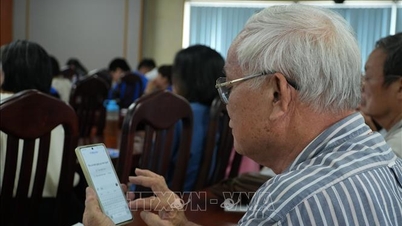
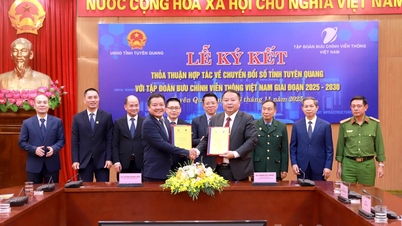

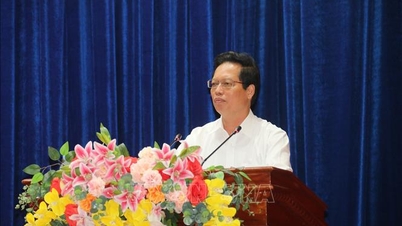


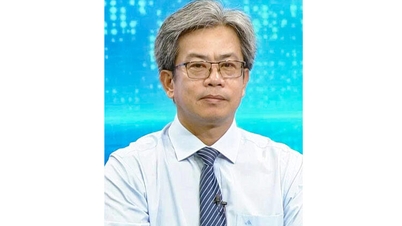


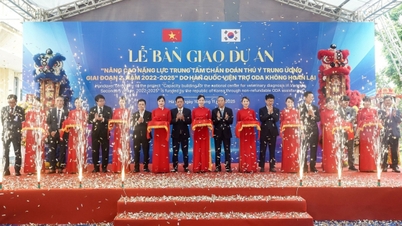

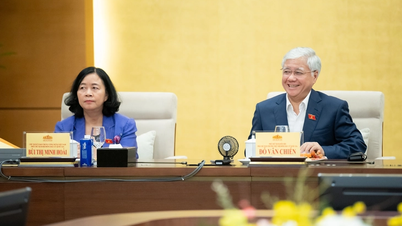






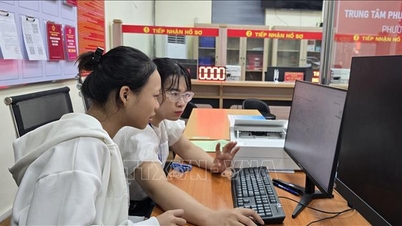






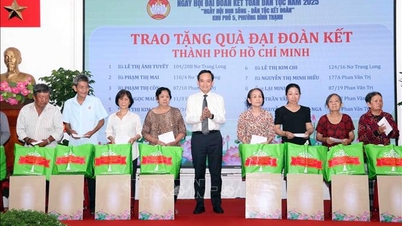

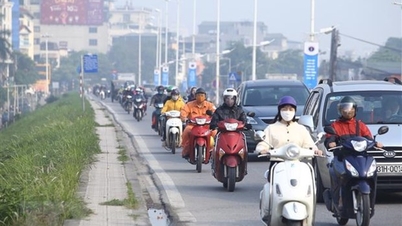
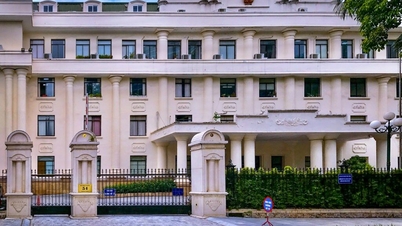






































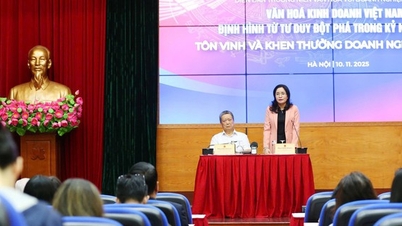










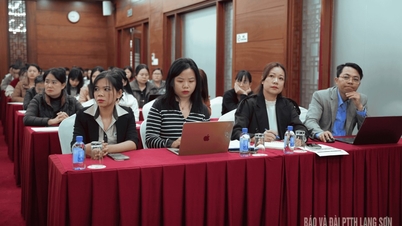


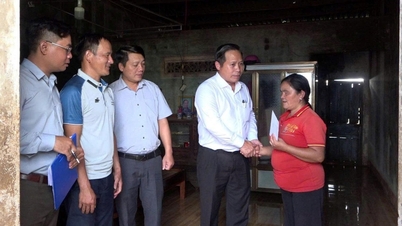

![Dong Nai OCOP transition: [Article 3] Linking tourism with OCOP product consumption](https://vphoto.vietnam.vn/thumb/402x226/vietnam/resource/IMAGE/2025/11/10/1762739199309_1324-2740-7_n-162543_981.jpeg)











Comment (0)